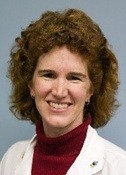Anxiety linked to increased cardiac risk in heart disease patients

Mary Whooley, MD
Heart disease patients with anxiety disorder were significantly more likely to experience stroke, heart failure, heart attack, transient ischemic attack (mini-stroke), or death than heart disease patients without anxiety, in a study led by researchers at the San Francisco VA Medical Center.
Principal investigator Mary Whooley, MD, a physician at SFVAMC, directed the study, which appears in the July, 2010 issue of Archives of General Psychiatry.
The authors followed 1,015 men and women with chronic stable heart disease for an average of 5.6 years. Using a standard diagnostic test, they determined which participants had generalized anxiety disorder (GAD), characterized by chronic exaggerated worry and tension without apparent cause.
Over the course of the study, 9.6 percent of the participants with GAD had a cardiovascular event, in contrast with 6.6 percent of the participants without GAD.
After controlling for a number of cardiac disease risk factors, the researchers found that anxiety disorder was associated with a 62 percent higher risk of cardiovascular events.
“The reason is unknown,” says Whooley, who is also a professor of medicine at the University of California, San Francisco. “As we might expect, the participants with anxiety disorder smoked more, exercised less, and were less likely to regularly take their prescribed medication. But the association between anxiety and cardiac events remained even after we controlled for these behaviors and other risk factors.”
Whooley notes that other studies have shown that stress is associated with ischemia, or reduced blood flow to the heart. “The reason may be elevated stress hormone levels or simply increased heart rate and blood pressure. We just don’t know, and more research is needed to find out why.”
Co-authors of the paper are Elisabeth J. Martens, PhD, of Tilburg University, the Netherlands; Peter de Jonge, PhD, of Tilburg University and the University of Groningen, the Netherlands; Beeya Na, MPH, of SFVAMC; Beth Cohen, MD, MAS, of SFVAMC and UCSF; and Heather Lett, PhD, of UC Irvine.
The study was supported by funds from the Department of Veterans Affairs, the National Heart, Lung, and Blood Institute, the American Federation for Aging Research, the Robert Wood Johnson Foundation, the Ischemia Research and Education Foundation, and the Nancy Kirwan Heart Research Fund. Some of the funds were administered by the Northern California Institute for Research and Education.
NCIRE - The Veterans Health Research Institute - is the largest research institute associated with a VA medical center. Its mission is to improve the health and well-being of veterans and the general public by supporting a world-class biomedical research program conducted by the UCSF faculty at SFVAMC.
SFVAMC has the largest medical research program in the national VA system, with more than 200 research scientists, all of whom are faculty members at UCSF.
UCSF is a leading university dedicated to promoting health worldwide through advanced biomedical research, graduate-level education in the life sciences and health professions, and excellence in patient care.